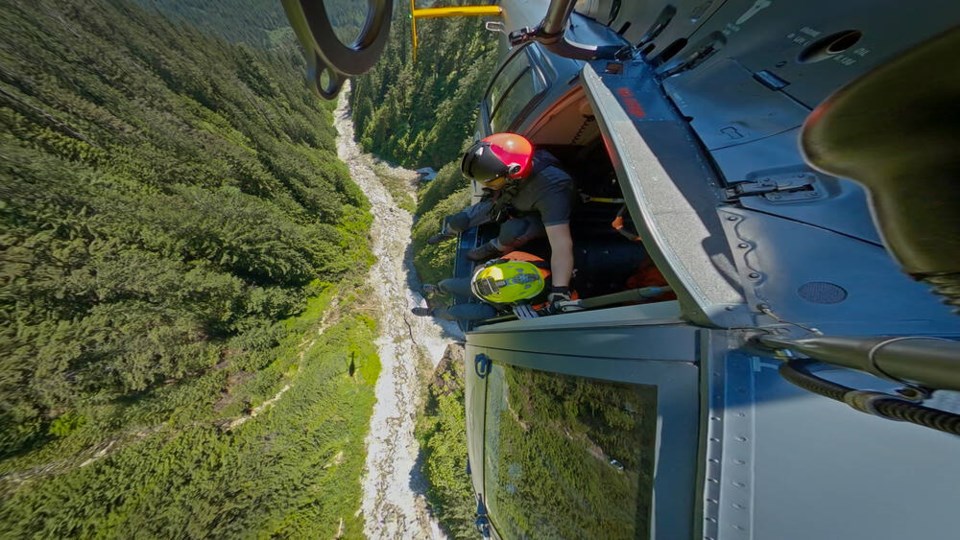North Shore Rescue’s volunteers were called upon 139 times last year – an “average” call volume, says team leader Scott Merriman. But 2024 was by no means an “average” year for B.C.’s busiest mountain rescue team.
Merriman estimates the team put in well over 10,000 volunteer hours in response time, training and administrative tasks.
According to the team’s stats, just under half of their calls (69) involved a helicopter. On 18 occasions, the team required the use of night-vision flying to rescue people after sunset.
Because of their unique skillset and access to tools, North Shore Rescue was requested to aid other teams around the province 34 times last year.
When an outside team requests help, it’s almost always a matter of life and death. That was the case in August when they were called to a backcountry hut near Pemberton where a man had suffered a stroke.
“[He] ended up going unconscious, and we were able to fly in at night. Our doctor intubated him, and we flew him back to Vancouver. It didn’t look good, but he ended up making a pretty full recovery,” Merriman said, adding it was one of the team’s prouder moments in 2024.
Because of changes in technology, the nature of backcountry rescues is changing, Merriman said.
A decade ago, it was not uncommon for North Shore Rescue to have multiple ground teams out for an all-night “ground and pound” search. Thanks to smartphones with GPS co-ordinates and emergency SOS features and better cell coverage in the mountains, it’s far more common to know where the subject is before they set out now.
“We’re going into the field with a lot more knowns than unknowns, which is really good for the safety of our members, and it’s good for the subject,” he said.
The team also achieved some other milestones in rescue technology in 2024, including the first-ever use of a motion sensor camera to alert the team to an out-of-bounds skier in dangerous terrain and using a drone to find a man who was lost in a canyon.
Like any organization, North Shore Rescue faces attrition as members move out of town, age out of active service or simply can no longer commit to the demands. The team welcomed new members-in-training in 2024, the first time they’d taken on new recruits in several years. With the high cost of housing here, Merriman said, attracting and keeping new volunteers has been a challenge, but the latest class shows great promise.
“They’re doing quite well. They’re quite keen and engaged. They’re already starting to help,” he said.
North Shore Rescue saw a changing of the guard at the highest level in June, when Merriman took over the role of team leader from Mike Danks. Danks remains a very active volunteer.
And the team returned to the small screen this year as the Knowledge Network aired the second season of Search and Rescue: North Shore. The way the show captures the volunteers’ work and their interactions with the public left Merriman with much to be proud of, he said.
Whenever the series airs, B.C.’s SAR teams tend to get a bump in donations, which is good because saving lives doesn’t come cheap, Merriman said, and the good will the docuseries generates makes its way to the volunteers.
“The service that we’re able to provide to the community at this level, just wouldn’t be possible without that public donations and public support,” he said. “The thank-yous on social media, the thank-yous in the public, those mean a lot to our members.”
This story was originally published as part of a Jan. 22 special print feature recognizing the work of the tireless volunteers of North Shore Rescue. You can see the entire feature as a digitial edition here.
[email protected]
twitter.com/brentrichter
brentrichter.bsky.social





